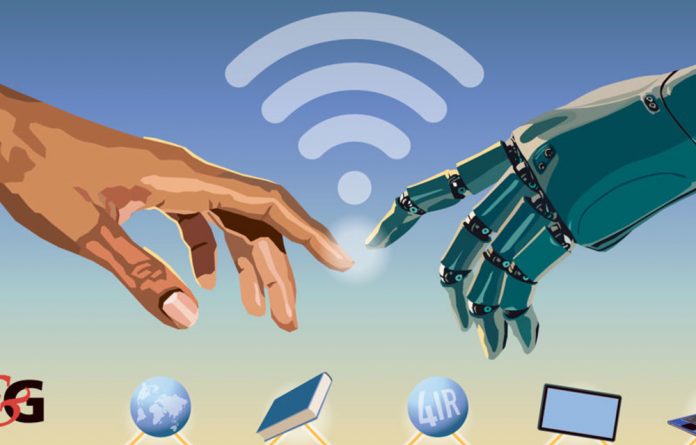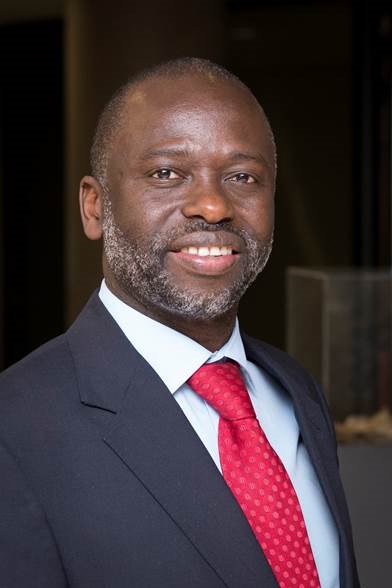Those who espouse liberalism as their guiding philosophy often pronounce their allegiance to this worldview with a semi-apologetic tone. This is perhaps especially true among mainstream South African economic and political intelligentsia where the label of “neoliberal” is about the most serious castigation that can be levelled against an individual. This stems no doubt from the historically linked introduction of this philosophy through colonialism in Africa and other corners of the Global South.
Moreover, liberalism continues to be associated with neocolonialism, with violent American and European meddling, ostensibly in the name of democracy.
Yet liberalism also entails common-sense and uncontroversial ideas about political order. Liberalism is derived from the Old French root word “liberalis” (itself from the Latin “liber”), which roughly translates to “free man”. Its most recognised originators include the Englishmen Thomas Hobbes, John Locke, Thomas Paine, John Stuart Mill, and the Frenchmen Montesquieu and Jean-Jacques Rousseau. All worked between the seventeenth and nineteenth centuries. What did these thinkers advocate?
Liberalism
Firstly, according to Hobbes and Locke, states result from a compromise we enter with each other as individuals to avoid anarchy. As Hobbes argued, life would be “nasty, brutish and short” in the absence of the state. For Locke, it was crucial that this state arrangement accord equal protection, without prejudice and favour, for example, towards particular religious sects.
Secondly, as emphasised by Rousseau, we as a society enter into a social contract with those who rule us – we forego some freedoms based on our own self-interest and entrust them to our leaders over whom we have some leverage (such as the right to revolt when misled or when a government becomes autocratic).
Thirdly, some freedoms are indispensable. Chief among these is the freedom of expression and the free press.
Finally, Montesquieu proposes that a separation of powers must underline the mechanism through which these rulers preside; hence liberal democratic countries have branches of government appointed and elected separately and are independent of each other.
These thinkers have influenced much of our political institutions in countries that are liberal democracies, most directly in the institutions of the United Kingdom and the United States. In turn, these dominant countries spread out these ideas after the First and Second World Wars to the rest of Europe as well as Japan. Indeed, the current Japanese constitution was principally authored by the US’ General Douglas MacArthur following the Japanese surrender after the US nuclear bombing in 1945. Earlier on, American President Woodrow Wilson and his French and British allies had forced the German and Austro-Hungarian empires to forego their monarchical systems in favour of liberal democracy after they lost in the First World War.
During the Cold War, there were forceful interventions by the West in other parts of the world. These were often replacing democratically elected leftist governments with authoritarians who were seen as necessary counters against communism. This highlights another face of liberalism, and that is its economic prescriptions.
According to liberal economic thought, it is not only moral but also economically sensible to minimise government involvement in the market as much as possible. In this view of the economy, the best price is arrived at by the spontaneous process of demand and supply.
At the time of its inception, this was a revolutionary idea. In medieval Europe, for example, the church and state’s close cooperation had shaped the marketplace, and religious thought made it necessary to maintain a “just price”. This is what we might term price control in today’s economy.
In the Enlightenment era that followed, liberal thinkers argued that this was unjust precisely because it led to distortions of what the actual price should be and thus argued that it was necessary to preserve a free market. This argument was captured by Adam Smith in his Wealth of Nations as the “invisible hand” of the market.
Artificial intelligence
What can the ideas of Hobbes, Locke, Montesquieu, Rousseau, and Mill say to us in today’s world of artificial intelligence (AI)?
AI refers to systems that enable machines to mimic the abilities of humans and to perform tasks such as analysis, prediction and production more accurately and efficiently.
AI is increasing the scope of its functions, thanks to unsupervised machine learning (ML). ML allows AI to learn and accumulate more abilities than are originally coded into it. Through cloud computing, the internet of things, and big data, robots can learn through the experiences of other robots. AI has been applied in such diverse settings as factories, call centres, bookkeeping, medicine, and warfare.
There are some issues over which liberalism falls short in the wake of AI.
Firstly, belief in the free market has proved too idealistic in light of the unseemly relationship between governments and big corporations to the benefit of the latter. Indeed, the past and present of AI development cannot be separated from the role played by funding ties to the military in research and development.
Secondly, faith in the market self-regulating to find the ideal price is also problematised in today’s world. Demand and supply is no longer a simple phenomenon. Research has shown that AI can modulate the price to the individual consumer in online retail platforms. In other words, the market has become individualised, instead of being general, as AI can predict your level of disposable income and then offer you a price it estimates you can afford.
Nevertheless, liberalism is a valuable and powerful paradigm.
The American educationalist and liberal philosopher Amy Gutmann argues that education in liberal democracies ought to forge conscious social production. This means institutions of public education in liberal democracies should create an environment in which citizens debate and engage with each other based on agreed-upon and shared facts.
Increasingly, however, individuals obtain tailored news thanks to algorithms embedded into social media platforms where we increasingly get our news. AI is contributing to what political scientists call political tribalism; algorithms “feed” individuals news from sources that they are already predisposed to accept and regard as legitimate, while others are regarded as fake news. This breeds mistrust and erodes the political process.
Many politicians have, in turn, taken advantage of these divisions. For example, political campaigns can predict the political leanings of individual voters and “micro-target” them based on their past Google search histories. This was part of the strategy used by the now-closed Cambridge Analytica in the election of Donald Trump in the US and influencing a “leave” vote in the Brexit referendum in Britain in 2016.
Liberalism highlights the importance of accountability. AI ought to be guided by checks and balances that reflect an updated social contract which is not only to be between individuals and their states, but, given their importance and power, between these and AI-producing companies as well.
Efforts led by technology companies have resulted in a Digital Geneva Convention, in which private corporations pledged not to allow their technologies to be deployed against civilians. It remains to be seen how much of this will be adhered to in the future, when government pressure may mount on these companies to avail their technologies for military operations. Moreover, in the modern world, military theorists have observed that the distinction between civil and military targets is no longer easy to determine.
We have also seen technology being used by citizens to foster social change. This was the case in the Afro-Arab Spring of the mid-2010s. Yet, the opposite also holds. Throughout the world, governments have used AI to scour the internet for dissident voices and suppressed them. In line with John Stuart Mill’s advocacy of free speech, AI ought to encourage and not suppress freedom of expression. Otherwise, AI algorithms will marginalise minority views because it works on the principle of the maximisation of utility.
AI underpinned by illiberal ideology can threaten freedom and have life-threatening consequences. When deployed by police departments in the US, for example, AI has overwhelmingly targeted black communities due to the embedded racism in the data that was fed into them. This is an affront to the presumption of innocence, which is so critical to liberal democracies.
Citizen action should ensure that there are a plurality and diversity of voices. This also requires diversity in the teams that are building the algorithms. This should be a matter of law, as the South African Presidential Commission on the Fourth Industrial Revolution argued in one of its eight recommendations.
Regardless of which philosophy eventually underpins our society, these are the self-evident truths that should guide our engagement with AI and other emerging technologies while we also avoid the glaring pitfalls and assumptions of liberalism.
Dr Ndzendze and Prof Marwala, both from the University of Johannesburg, are authors of the forthcoming book Artificial Intelligence and Emerging Technologies in International Relations (World Scientific Press). Reach them on Twitter: @NdzendzeBhaso and @txm1971





